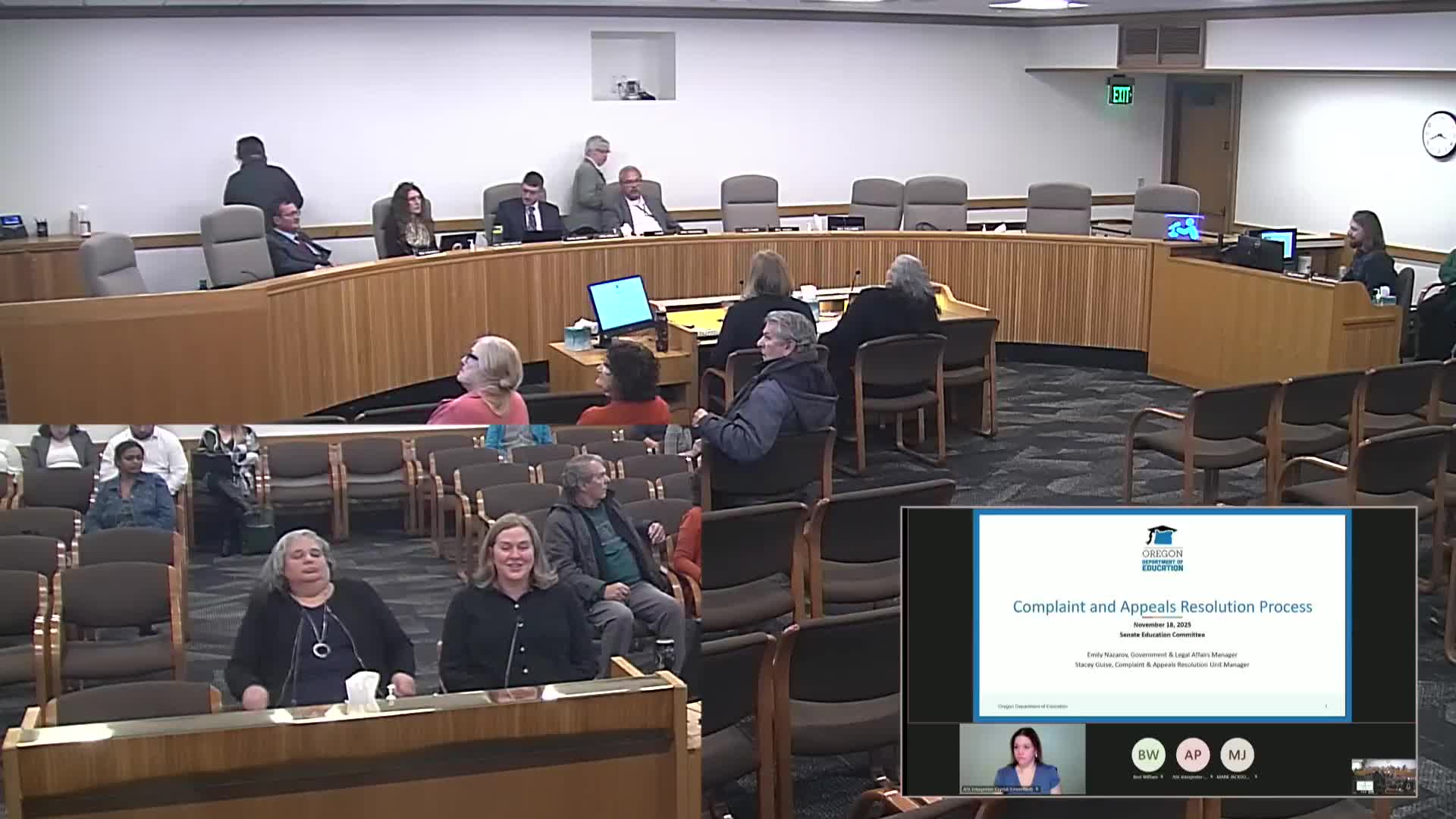Oregon Department of Education outlines complaint backlog, staffing and reforms
Get AI-powered insights, summaries, and transcripts
Subscribe
Summary
Oregon Department of Education officials told the Senate committee their complaints and appeals caseload has surged since 2019; ODE described process changes, appropriations of 14 permanent positions in 2024, a backlog of 35 cases over the 210‑day order deadline, and steps to fill investigator posts and improve intake and training.
State education managers told the Senate Interim Committee on Education on Nov. 18 that Oregon’s complaints and appeals unit has experienced rapid growth in filings and is working to clear a backlog while expanding staffing and process tools.
Emily Nazaroff, government and legal affairs manager at the Oregon Department of Education (ODE), and Stacy Guise, manager of the complaints and appeals resolution unit, said ODE’s online complaint form (launched 2019) increased access and filings. Guise said the unit now receives hundreds of complaints per year; the testimony cited 29 complaints in 2018, 85 after the online form launch, and "over 350 complaints per year" in the most recent full years. As of the presentation, Guise said, the unit had 66 open complaints, with 35 cases in the backlog category (past the 210‑day deadline to issue an agency order).
Guise described the unit’s workflow: intake (authority, timeliness, ripeness), use of contract investigators for fieldwork, drafting agency orders (no deficiency or deficiency with corrective actions) and corrective‑action tracking. She said that for complaints filed on or after Jan. 1, 2026, discrimination cases may include student‑specific sanctions authorized by Senate Bill 867 (2025 session). When an order finds deficiencies, ODE can require corrective actions and, if those are not completed, may withhold state school funds.
Nazaroff said the 2024 legislative appropriation added 14 permanent positions and $150,000 per biennium for investigator contracts; ODE has used those funds to expand a civil‑rights unit, add civil‑rights coordinators at districts (a 2023 requirement under HB 2281), and create civil‑rights support specialists to assist families. She told the committee that 12 of 14 positions had been filled as of last spring and that two in‑house investigator positions remained open because ODE staggered hiring and paused recruitment in early 2025; ODE expects to make offers for those investigator positions in early December with onboarding soon after.
Community testimony underscored urgency. Mark Jackson, executive director of REAP Incorporated, said students of color described racialized trauma and that some students are not attending school because of harassment; he called for expedited staffing and clearer accountability. "Students have fragile trust that their experiences are not being validated," Jackson said.
Committee members asked ODE for concrete capacity needs, possible efficiency gains (including whether non‑final AI tools could assist intake or triage), and greater transparency on how 'good cause' extensions are applied to statutory deadlines. Guise described current factors used to grant good cause (case complexity, number and type of allegations, novel legal issues and volume of cases) and said ODE may codify those criteria in rule as backlog levels change. ODE also committed to follow‑up reporting on capacity and efficiency timelines to inform legislative budgeting.
The hearing produced no immediate policy votes. Committee members requested follow‑up materials, including more detail on proposed efficiencies, a plan and timeline to reduce the backlog, and an accessibility review of ODE’s complaint intake forms.
